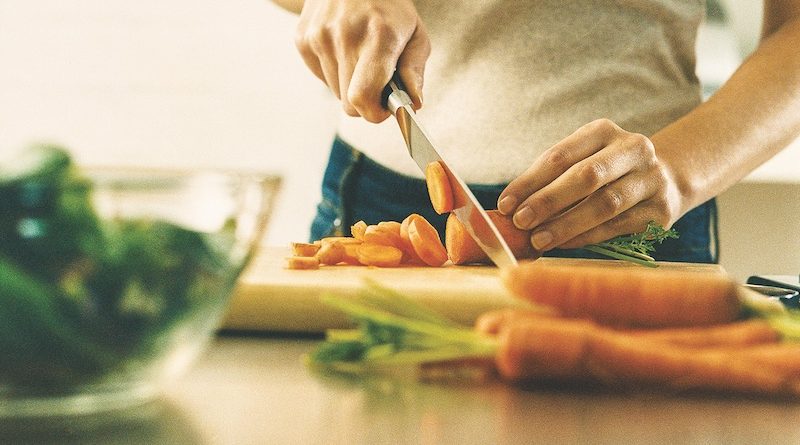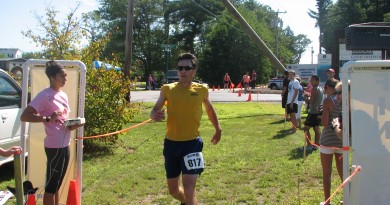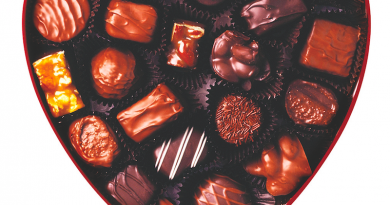Sports Nutrition Done Right
Craftsbury — With so many training plans, diets and supplements out there it’s tough to know what’s good for you and what’s not.
Vermont Sports talked with Allison Van Akkeren, a professor at Sterling College who specializes in nutrition, to help readers separate hype from fact, and understand the fundamentals of a good nutrition plan for athletes pushing themselves in recreational or competitive ventures.
Van Akkeren, 53, earned her master’s degree in nutrition and worked as a registered dietician in the university hospitals at the University of Wisconsin in Madison before coming east to work as a nutritionist and a coach for the Craftsbury Outdoor Center in 1985. Today, she teaches nutrition, environmental education, cross-country skiing and skills for winter camping at Sterling College. She’s also a dedicated cross-country skier and enjoys ski orienteering with her husband.
Van Akkeren takes what she calls a “whole-foods” approach to sports nutrition. By keeping as many unprocessed foods as possible in athletes’ diets, she says they will be healthier overall, perform better and recover faster.
It’s a point she drives home with every one of her students.
“When students don’t know an answer on one of my tests, I tell them to write down, “Eat whole foods.” In a question-and-answer format below, Van Akkeren discusses how nutrition affects performance and provides tips for how and what to eat at various stages of your training – before, during and after. For more sports nutrition advice, she recommends athletes look for R.D. Nancy Clark’s Sports Nutrition Guidebook.
Vermont Sports: How do you view sports and nutrition interacting?
Allison Van Akkeren: When I talk about nutrition, I’m talking about using a whole foods approach, which means using foods as close as possible to their natural state. Those foods carry compounds that interact with each other in highly complex ways that synergistically benefit our overall health. So, if you separate them out and put them in a bar, they don’t tend to be as active. Our natural foods know what’s the right way to balance so that they work best for our health. It’s the best way to eat for our overall health by preventing diseases, healing and then enhancing our performance.
VS: Do the nutritional needs of athletes differ from non-athletes?
AA: There are complications that athletes have, for example at races you need food immediately after the race. You can’t just immediately run down to the general store and expect to find good whole foods that you want to be eating. It takes a little bit more planning. I also like to talk about what to eat before, during and after the race. It’s not necessarily that athletes have completely different needs, it’s that there are ways that you can eat to optimize your performance.
VS: What are some common or basic mistakes that you see athletes making in their diets?
AA: Mistakes being made at both ends: Some people think that in order to build muscle you need to eat lots of protein. But that can’t happen without the exercising along with it and you need the carbohydrates to give you the energy to build muscle.
On the opposite end, there are a lot of athletes who are trying to lose weight. There are a lot of studies that show that if you’re trying to lose weight while competing, your performance is going to go down. Other kinds of misconceptions are that people need to have a special bar or a special combination (of high energy food) to meet your needs. There are some uses for athletic foods, like energy gels and bars, but that doesn’t have to be the entire way you fuel yourself.
VS: Walk us through what athletes you have worked with are eating before their races, during their events and then directly after. How should this be structured?
AA: First, overall, being well hydrated is very important. For high school athletes that can really be a problem. I see it in our cross-country skiers – trying to get them to drink water during the day of a race or even being well hydrated the day before that. In school, they can forget to drink and I think it is a key component for all athletes.
You can stop drinking two hours before the race so you won’t have to urinate during the race, but take small sips. If you’re in a shorter race, you may not need to drink at all, but if you’re talking about marathon ski races, you’ll want to be getting water in you during the race. In the first half hour, I usually start drinking something and then after an hour, I like to have something with a carbohydrate mixed in as well. For those long competitions, you’ll want to be drinking four to eight ounces every 20 to 30 minutes. It’s been found that winter sports athletes don’t feel the effects of dehydration as badly; that you won’t see decreased performance as badly as you do during the summertime.
That depends on what level of performance you’re at. When I was younger and I was racing marathon ski races all the time, I could get by with less. Now that I’m older, I have to be eating a lot more during the race. Each person has to figure that out for themselves.
But usually, when you’re an hour into the race, you’ll want some extra fuel and not just be drinking water.
In the pre-competition, stick with familiar foods. Don’t try something you’ve never had before. Make sure it’s something your stomach can handle. Usually, you’ll want to be eating until three or four hours before a race and have that time to let your food digest. In case the event is delayed for an hour or two, make sure you have something to hold you over so you’re not coming into the race really hungry.
During competition, you’ll want to optimize your glucose availability and avoid dehydration. Those are the two things you want to be working toward. If you’re going for an hour, you’ll need to be more systematic about what to eat. After an hour in, you’ll want to be eating 100 to 250 calories in carbohydrates. Again, use familiar foods – practice ahead of time using what you’re going to be competing with. If there’s going to be a feed station, bring along some foods that you know you’re comfortable with because you can’t always count on what they’re going to have there. It’s really about what you feel comfortable with.
The big part in post-competition is looking to restore your fluids, replenish your glycogen stores so that you can be ready to train again in the next day or so, and stop the muscle breakdown that happens after you’ve been working out. Immediately after the race, somewhere within 30 minutes to an hour, you’ll want to get some food in you even though that might not be when you’re really hungry. You want to consume 30 to 60 grams of carbohydrates with about eight to 16 grams of protein. That can mean a cup of chocolate milk, a handful of dried fruit and nuts or any number of energy bars.
VS: How about sports drinks? When it comes to electrolytes and restoring the salts and sugars in your body are they the way to go?
AA: I think there’s certainly merit to them and different drinks are slightly different. Especially in longer distances like 50ks, or 50 milers, you can’t just be drinking water. Any time after an hour of intense exercising, you need to be replacing electrolytes, so those drinks can do some replacement. We used to say we wanted to replace as much liquid as we lost in sweat. The thought now is we don’t have to replace quite that much anymore. As our glycogen breaks down, we’re also releasing water. Once you get past an hour’s time you need to be replacing some of your sodium and potassium and every person is different in terms of how much salt they sweat out. A well-trained athlete won’t lose as much sweat or won’t lose as much salt in their sweat. You can even make your own energy drink without using the pre-made ones.
VS: Are there any other vitamins and minerals that are important for athletes? Where are some good sources to find them?
AA: The number one nutrient that’s concerning for athletes would be iron. It’s in the hemoglobin and allows the attachment of oxygen to the red blood cells. If you’re not able to attach oxygen to your red blood cells, you’re not going to be able to have as much oxygen in your system, causing you to feel tired. As an athlete, if you’re building more muscle you’re going to need more iron to build the muscle. It’s a nutrient that can be difficult to get.
Some of the best sources of iron can be liver and organ meats. When I talk with people about eating meat, I usually encourage them to look for grass-fed meat. There’s a lot of great research that shows that grass fed is healthier for you than more industrial meats. This is also a case where supplements like vitamins do help. Athletes who are vegetarians also have to be careful about getting their iron. There is a lot of iron in leafy greens (like kale) and they’re a lot more viable if you cook them. There are also ways to enhance iron absorption, like cooking in an iron skillet and taking vitamin C.
VS: We’re moving into winter sports in Vermont. What are some things that athletes should be watching out for while they train during the colder weather?
AA: The cold can dampen our thirst mechanism and even our hunger mechanism sometimes. When you’re exercising, you might not realize that you’re depleting yourself. If you’re out for a long time, make sure that you bring a snack along with you. It’s way healthier and you’ll perform better if you’re feeding yourself during your exercise. If you go out for a four-hour cross-country ski, don’t think about having a big meal when you finish. Instead focus on bringing some of that meal with you. If you’re going to eat sugars and sweets, it’s best to eat those while you’re exercising, but when you’re out in the freezing cold eating your cookies, it’s not as enjoyable as eating them by a fire with a cup of hot chocolate.
VS: Finally, it’s common for many people to eat a snack — a hot chocolate or hot tea with cookies or a desert — right before they go to bed, or even to lie down on the couch right after a big meal. Is this something to avoid and how does this impact the digestive system?
AA: As an athlete – or really anyone but if you are working out you want to be sure you have a good store of energy for your workouts – it is best to eat even size meals through out the day. However. Having a snack in the evening is not problem especially if you have a difficult time eating before you exercise if you exercise first thing in the morning. I know that I certainly feel a need to lie down on the couch after a big meal – your body uses some energy to digest food. I don’t believe there is any harm to in it.
Opening photo: MetroCreative stock



